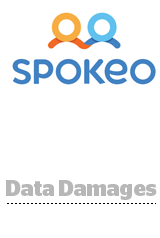 Here’s today’s AdExchanger.com news round-up… Want it by email? Sign-up here.
Here’s today’s AdExchanger.com news round-up… Want it by email? Sign-up here.
No Harm, No Foul
The US Supreme Court on Monday rejected a claim brought against the data broker Spokeo after it misidentified a single, 29-year-old man named Thomas Robins as married and in his 50s. The plaintiffs failed to adequately demonstrate how Robins was hurt by the disclosure, Justice Samuel Alito wrote in a 6-2 ruling. “We have made it clear time and time again that an injury in fact must be both concrete and particularized,” Alito stated. The decision doesn’t set a decisive precedent (instead punting the decision back to lower courts), but the burden is clearly on US consumers to demonstrate tangible harm if they want legal standing to dispute commercial data practices. More at Fortune.
Pub Grub
With more than 1 billion monthly uniques on desktop – up from 500 million last year – Taboola has become the world’s second-largest discovery platform behind Facebook, according to a company release. Taboola claims its recommended links reach 95% of US Internet users (more than Google, Facebook and Yahoo). Content recommendation is a difficult niche, with tough competition and real concerns over ad quality and sourced traffic, but Taboola is making the argument that it’s the only player with “a significant network effect” driving advertiser value.
Sumo Wrestling
Google badly wants to beat Amazon as the dominant product discovery platform on mobile. The company has released two mobile-first ad formats to increase offline conversions from Google search, Recode reports. The first will allow product ads to surface as part of image search results. The second lets shoppers make purchases for in-store pickup and check inventory supply at local retailers. Google will deploy its “buy now” button on the new formats sparingly, showing retailers it’s happy to drive brick-and-mortar value. More.
Upfront Evolution
The 2016 upfronts could drive more than $9 billion in advertising purchases, but not just for the traditional 30-second TV spot, The New York Times reports. Magna Global recently shifted $250 million from traditional TV budgets to YouTube. “What we are trying to do is signal to the market that it is not business as usual,” said David Cohen, US president of Magna Global. “Consumers have over the past several years been migrating away from linear television, and we need to acknowledge that.” Networks are taking note, too: NBC is cutting back on ad time in favor of more integrated sponsorship opportunities with individual programs. More.
But Wait, There’s More!
- Google Faces Record-Breaking Antitrust Fine – Telegraph
- Tencent To Borrow Up To $4 Billion For Acquisitions – WSJ
- Programmatic Is Key To Keeping NewFronts Relevant – Adotas
- Jae Goodman’s Solution To End Interruptive Advertising – Campaign
- Connexity Expands Audience-Based Metrics, Reporting – release
- Investing App Acorns Launches A Rewards Program – Business Insider
- LinkedIn Released New Advertising Tools – blog
- Facebook Needs To Start Acting Like A Media Company – Mashable
You’re Hired!
- Solange Claudio Named President of Moxie – release
- Christopher Contreras Joins Celtra As Senior VP – release
- NetSeer Names Amir Bakhshaie Head Of Product – release












